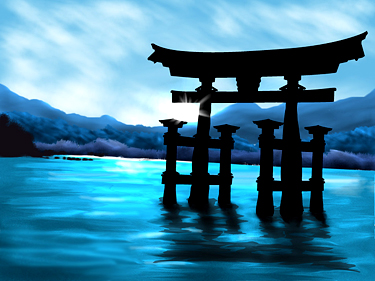
~
This is Tanka Prose, similar to Haibun. Instead of the Haibun’s Haiku ending, this features a Tanka, of my composition, at its close. The 31-syllable Tanka has been the most popular form of poetry in Japan for over 1300 years. As a form of poetry, Tanka is older than Haiku, and Tanka poems are intended to be evocative.
During Japan’s Heian period (794 to 1185 A.D.) it was considered essential for a woman or man of culture to be able to both compose beautiful poetry and to choose the most aesthetically pleasing and appropriate paper, ink, and symbolic attachment, such as a branch or flower, to go with it.
Tanka have changed and evolved over the centuries beyond the traditional expressions of passion and heartache, and styles have changed to include modern language. But the five syllabic units, containing a total of 31 syllables, has remained the same. Each line of a Tanka consists of one image or idea. One does not seek to wrap lines in tanka, though in the best Tanka, the five lines do relate, to evoke a cohesive feeling. The feeling here is serenity.
sampans on the blue waters
blue temple gateway
blue is the soul of serene
let it calm your restless heart
~ ~ ~
rob kistner © 2019